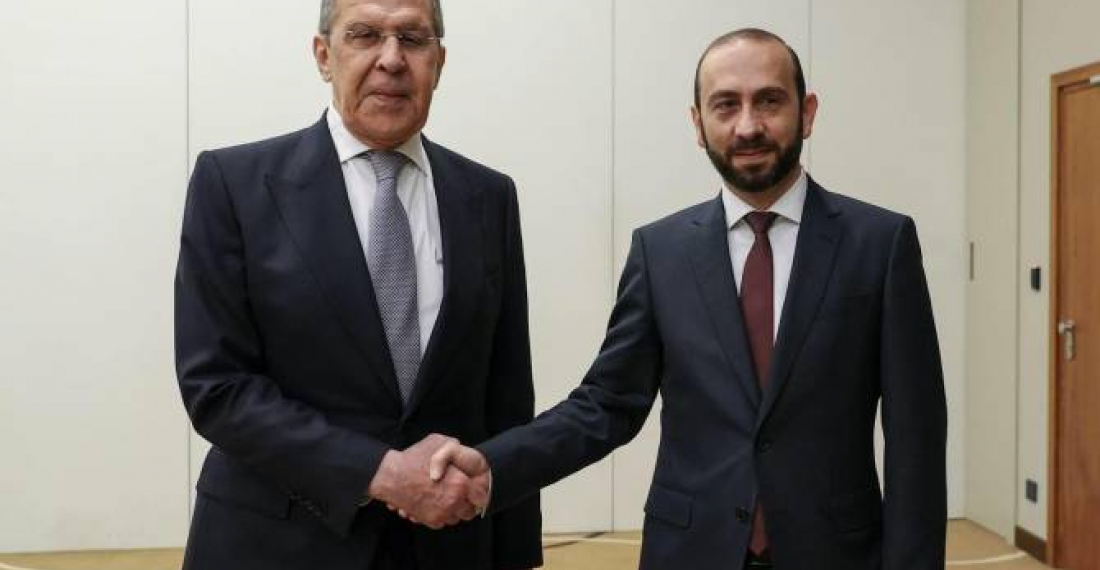The foreign minister of Armenia, Ararat Mirzoyan, was in Moscow earlier today to meet with his Russian counterpart, Sergey Lavrov, and discuss the Armenian-Azerbaijani peace process as well as Russian-Armenian relations.
Lavrov reportedly said that the sides had discussed a variety of issues, including the terms of the delimitation of the border between Armenia and Azerbaijan and potential future steps to strengthen trust and stability on the borderline. The Russian FM expressed hope that the new commission for the delimitation of the border would be established as soon as possible, adding that Moscow had no objections to this. He further noted that “Russia is ready to provide support to the work between Yerevan and Baku for creating conditions for the signing of a peace treaty between Armenia and Azerbaijan”.
The sides also touched upon the role of the Russian military contingent in Nagorno-Karabakh. Mirzoyan said that he was “confident” that the effective activity of the Russian forces would help maintain peace in the region, and contribute to the observation of the ceasefire. He added that Armenia still believed that the status-quo would be restored, and that the Russian forces would continue fulfilling their important function and mission. Armenia had earlier called for a full investigation into the actions of the contingent, after it accused Azerbaijan of “invading” the village of Farukh, which lies within the area of responsibility of Russia. However, Lavrov said today that while the circumstances were not fully clear, “the calls for launching an internal investigation do not reflect the real attitude of the Armenian people and the leadership of Armenia and the big role that the Russian peacekeeping contingent plays for ensuring stability in the region”. He accepted that “little incidents” took place, but said that “our servicemen are dealing with this particular incident”.
The role of the OSCE Minsk Group as an effective format for peace in the South Caucasus has long been questioned, but the recent Russian invasion of Ukraine has made the possibility of any meaningful contribution from the group even less likely.
During a joint press conference with Mirzoyan, Lavrov said that the future of the format was in doubt. He claimed that “French and American partners in this group have a desire to cancel anything and everything that concerns Russia”, adding that as a result, he “did not know what its future would be”. France, Russia and the United States are the three co-chairs of the process.
Mirzoyan struck a different note, saying that the international community continued to see the settlement of the Nagorno-Karabakh conflict within the framework of the OSCE Minsk Group Co-Chairs. While he admitted that the current geopolitical situation had made the work more complicated, he said he had received signals confirming that many international actors wanted to see the OSCE Minsk Group involved in the resolution of the current Armenia-Azerbaijan conflict.



